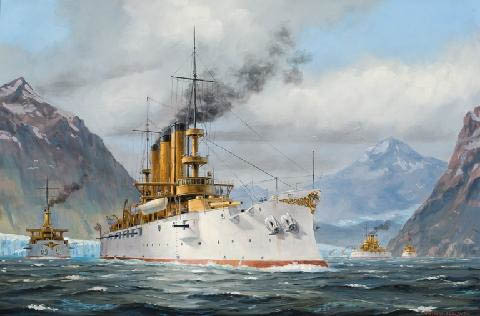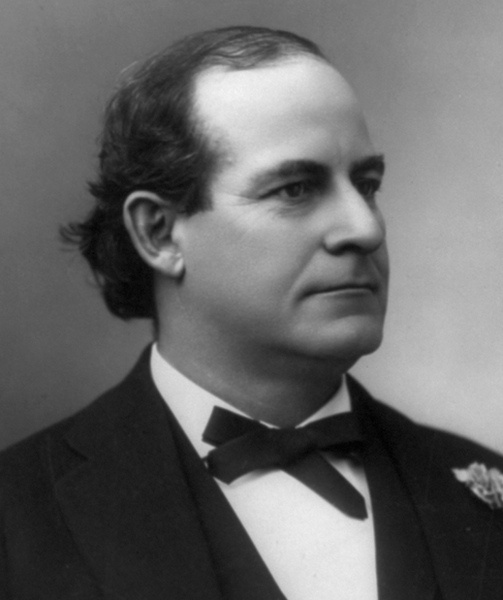1904-1908: The Socialist Revolution
Eugene V. Debs gave an elaborate speech at inauguration. He was charismatic and eloquent. Filling his speech with rich, Christian metaphors and messages of the universal brotherhood of man, he vowed to fight against corruption, greed, violence, and poverty. His first step was to enact dozens of socialist programs, including extending benefits to veterans, the disabled, creating social security, and several other incentive programs to secure human rights and promote social mobility.
President Debs then told top American scientists to stop research on rocketry and begin researching environmentalism and ecology. He stated that the state of pollution had reached a point where it was negatively affecting the population.
Debs was the first president to regularly address the nation via television. After addressing the reasons why America had begun researching ecology, and giving information on how households can reduce pollution, he then traveled to Ireland to overlook the invasion of England. When Admiral George Dewey, the former president, refused to follow orders, Eugene Debs dismissed him and found a replacement for leading the troops. In July 1905, after fierce air combat between English fighters and American bombers, troops landed in Wales and marched for London.
Eugene's leadership of the armies was praised; even reluctantly praised by his opponents. During his first term, not a single fleet nor army division was lost, and historians would state his leadership was the most efficient in American history.
President Debs also greatly extended foreign aid and improved foreign relations. When the nation of Tibet asked for aid increasing their food output in the steep mountains, Eugene V. Debs personally flew out to Tibet with some officials and scientists to aid Tibet.
Although he cut the budget for espionage and relocated it back to science, Debs greatly expanded the espionage network by expanding the authority of the FBI and Pentagon. Within a year of his declaration that ecology was being studied, the concept of recycling was engineered and quickly enforced throughout the States. Pollution began lowering in all corners of the nation.
Boston was given a small budget to create a national gallery for American history. Debs hope was to increase American culture as a way to compete with older, European cities.
By January 1906, after months of air bombing, blockade, and intense fighting, London was taken by American forces. Although the English offered their surrender, Debs declined and stated that America will not pay for the upkeep of corrupt politicians. The state of England nearing the end of January was bleak, with American forces landing in Scotland in addition to the large army stationed in London.
In March of 1906, Debs began signing the independence of several American territories as promised during his campaign. Independence was granted to Jamaica, Haiti, the Dominican Republic, Trinidid, and the Bahamas. The French Pacific was given to Thailand in order to bolster their copper production, and finally the Congo was gifted to their native people.
By July, York, Port Victoria (formerly Port Lockwood, and renamed Port Hedland in honor of the explorers and to stay politically neutral), Africa (with captured colonies being returned to Mali). By the end of that year, Alexandia, and Scotland had fallen as well. The taking of Scotland greatly shook the confidence of British colonies, with all but India declaring their independence. India, now the only "British" nation, seated King Edward in New Delhi and continued to fight.
It is interesting to note the rise of other nations during this time. With two of the largest former empires dissolving (Russia and England), Italy, Greece, and Poland have been gaining the most from it. Italy can bee seen having taken Spain. Greece has gained Albania, conquered south Russia and annexed Tibet. Poland has annexed Ukraine.
Nearing the end of his term, Debs proudly proclaimed to his nation that America was the first nation to send a man into space.
Debs actively participated in the United Nations, and heroically led the motion to have a single, united currency to be used throughout the world. The dollar was now the official currency of the world, but conservatives fiercely despised this. No longer was America's money bearing former leaders or American patriotism, but WORLD heroes and scientists. Nevertheless, the economy boomed due to this.
Argentina and America signed a peace treaty in July 1908. This coincided with America captured Perth; the city that seceded during Lockwood's third term.
The last military operation that Debs personally took a part of was the invasion of Ceylon. Top military officials had stated that taking the island would make for a great base for leading an invasion of India, and finally finishing the British Empire.
During his campaign, Debs made a point of allowing high transparency into the government. Debs presented over television government statistics such as the improving economy, and the improving stability. Stability, around -53 during the Dewey administration, had dropped to -30 and would continue to improve as he stated a lot of instability merely came from the war and the annexation of England. He predicted stability would reach -5 by the end of the war, and promised to further improve it by expanding the economy, enacting environmental bills, and improving diplomacy. He has also stated one of his goals for his second term would be increasing American culture, in order to gain the position of most cultured city in the world.

 . Finally the USSA ! woah ... so after waging endless and pointless wars against Communist nations, and killing hundreds of thousands in Russia and Finland and elsewhere, the Capitalist behemoth that is the USA will see a Socialist president ! .... wow
. Finally the USSA ! woah ... so after waging endless and pointless wars against Communist nations, and killing hundreds of thousands in Russia and Finland and elsewhere, the Capitalist behemoth that is the USA will see a Socialist president ! .... wow 


































